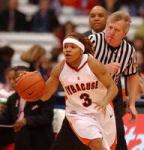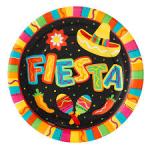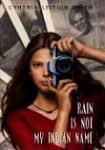 In the US census between 2000 and 2010 people identifying as more than one race increased by 32%. It is, by most methods of calculation, the fastest growing racial group in the county and one that also needs representation in children’s books.
In the US census between 2000 and 2010 people identifying as more than one race increased by 32%. It is, by most methods of calculation, the fastest growing racial group in the county and one that also needs representation in children’s books.
I didn’t set out to write a book about a biracial child, but I grew up in a neighborhood that seemed outwardly monocultural. As I got to know my classmates and their families over time, I learned that my neighborhood was far more diverse than it appeared. Several friends spent part of the year living in the Middle East. I regularly babysat for a family with white and Native Alaskan parents. One of my childhood friends spent every summer in Japan with his grandparents. He was fluent in Japanese and English, passionate about martial arts, and sometimes misunderstood by classmates who found his pride in his grandparent’s culture silly. He bore a strong resemblance to his American father and I remember watching him, and other biracial classmates, navigate the balance between body language, speech patterns and cultural convictions that set them apart and the convenience of looking white enough to blend in.
In writing a story with a biracial character and thinking through my childhood experiences with an adult’s perspective I’ve found that biracial characters are magnets for conflict in ways that make them useful for story-making though not easy in the actually living of the biracial experience. Here are some avenues of conflict you might explore if you are considering writing biracial or bicultural characters.
1. “But you don’t look Indian!” I actually heard someone say this to an accomplished Native American author recently and she responded with what I felt was the perfect balance of firm resolve and compassion. It’s a terrible thing to say to someone–essentially, “you are not who you are.” That comment, and a dozen equally offensive variations, confront biracial people regularly. The relentless explaining of your identity is soul-wearying and makes a great plot point because even the most confident and well-nurtured biracial person can develop doubts of ever find a place where they belong.
 2. “Shouldn’t you be more_____?” Is another phrase a biracial person frequently hears. Many minorities feel a pressure to behave in the expected mold of their culture, the intellectual Jew or the violin playing Korean child or the athletic black teenager, for example.
2. “Shouldn’t you be more_____?” Is another phrase a biracial person frequently hears. Many minorities feel a pressure to behave in the expected mold of their culture, the intellectual Jew or the violin playing Korean child or the athletic black teenager, for example.  It is hard enough to live up to the imagined-by-outsiders standard of one community, let alone trying to meet the expectations of two or even several.
It is hard enough to live up to the imagined-by-outsiders standard of one community, let alone trying to meet the expectations of two or even several.  The burden of living up to an impossible standard makes for great internal conflict in a story.
The burden of living up to an impossible standard makes for great internal conflict in a story.
3. For many biracial people the aspect of their racial and cultural identity that comes to the fore varies with circumstance. So a family might choose to emphasize the heritage that blends most readily with the community at hand. Or the most advantageous one. For example, if the local schools are substandard, and a Jewish day school with better resources is available, then a family might choose to identify more strongly as Jewish and become more observant than they might have otherwise. For the biracial child this can feel like playing favorites with one parent over another or one set of grandparents over another. The tension between wanting the advantage the easy racial identity provides and wanting to see justice done for the disadvantaged racial identity is great food for complex story telling
4. I had a fascinating conversation with Pico Iyer a few summers ago about raising biracial and bicultural children. He’s found that both his own kids and those he knows from his many travels are masters of observation and highly attuned to cultural nuance. Not that the insights they have are unavailable to others who take the time to be attentive and make connections, but that the connections others overlook are blindingly obvious to a biracial or bicultural child. A keenly observant child always makes for a more interesting viewpoint character and the kind of observations readily available to the child who straddles a number of cultural groups is particularly valuable.
5. And here’s the tough part (at least from my perspective as a bicultural but not  biracial person). Often what white people do to acknowledge and respect cultures other than their own is so awkwardly done that it makes matters worse rather then better. The dressing up as pilgrims and indians in one glaring example. Here’s another. I recently heard hip-hop poet Merlyn Hepworth perform a poem about his 8 year old self and the school fiesta. He is Mexican-American and grew up in Idaho, a state well known for active white supremacist groups. Nonetheless, his 2nd grade teacher wanted to broaden her students’ world view, so they had a class fiesta. Young Merlyn, all excited, asked his abuela to make tortillas, his favorite food. So she did and on fiesta day he brought them all fresh and warm, with the delicious little scorch marks that hand-made tortillas have. He set this treasure on the table alongside an array of Ortega products, Fritos, salsa in a jar, and chips with melted cheddar cheese. His whole class and teacher and school principal came to the table to eat and not one person would touch his grandmother’s tortillas. And for the first time in his young life Merlyn was ashamed to eat them himself. And so the whole event had the opposite effect from the one the teacher intended. She had wanted to celebrate Merlyn’s culture and ended up making him feel ashamed in a way he hadn’t before and might not have ever been if he hadn’t brought real Mexican food to a pretend fiesta.
biracial person). Often what white people do to acknowledge and respect cultures other than their own is so awkwardly done that it makes matters worse rather then better. The dressing up as pilgrims and indians in one glaring example. Here’s another. I recently heard hip-hop poet Merlyn Hepworth perform a poem about his 8 year old self and the school fiesta. He is Mexican-American and grew up in Idaho, a state well known for active white supremacist groups. Nonetheless, his 2nd grade teacher wanted to broaden her students’ world view, so they had a class fiesta. Young Merlyn, all excited, asked his abuela to make tortillas, his favorite food. So she did and on fiesta day he brought them all fresh and warm, with the delicious little scorch marks that hand-made tortillas have. He set this treasure on the table alongside an array of Ortega products, Fritos, salsa in a jar, and chips with melted cheddar cheese. His whole class and teacher and school principal came to the table to eat and not one person would touch his grandmother’s tortillas. And for the first time in his young life Merlyn was ashamed to eat them himself. And so the whole event had the opposite effect from the one the teacher intended. She had wanted to celebrate Merlyn’s culture and ended up making him feel ashamed in a way he hadn’t before and might not have ever been if he hadn’t brought real Mexican food to a pretend fiesta.
Here are just a few stories with biracial characters you might enjoy.
Misad ventures of the Family Fletcher by Dana Levy
ventures of the Family Fletcher by Dana Levy
Rain is not my Indian Name by Cynthia Leitich Smith
Unusual Chickens for the Exceptional Poultry Farmer by Kelly Jones
Operation Redwood  by S. Terrell French
by S. Terrell French
Shadows of Sherwood by Kekla Magoon
I’d love to hear about books that you felt did a good job of representing the biracial experience. Let me know what books I should be highlighting and I’ll add them to this post and ask the buyer to get them for my bookstore.
